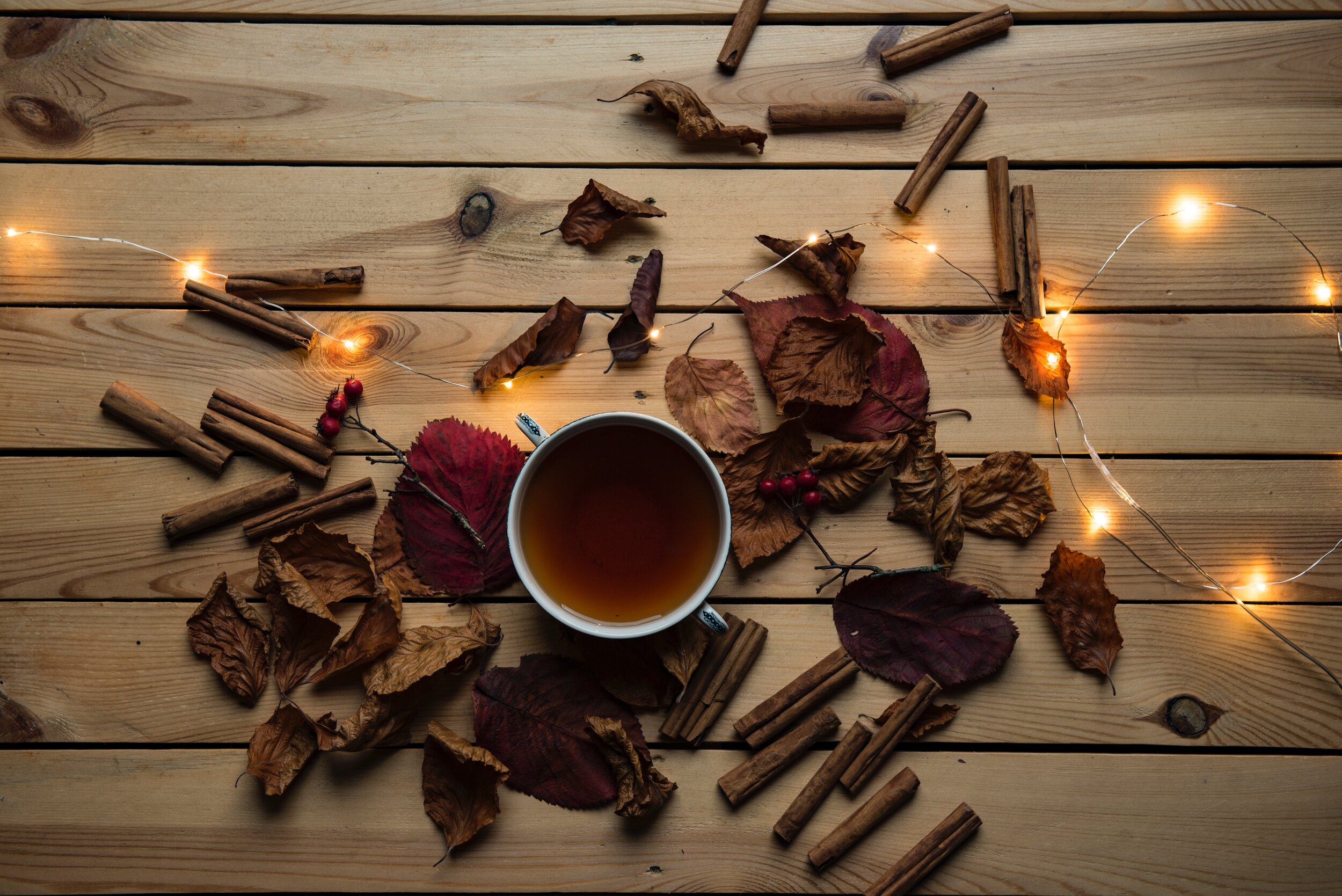Can you trust your senses?
Luscious, creamy chai…
Can you trust your senses?
What do they tell you? Surely they guide you through the world safely, getting you from one place to another, alerting you to pain and danger, helping you do the things you need to do in life.
Sight, sound, touch, smell -- these senses are noble, helpful, trustworthy, above reproach. They keep you safe and get you through life.
But what about taste?
What is taste, to you? Is it a tool, like the others, or is your relationship with taste more complicated?
Taste is often demonized in our society, certainly not a sense to be trusted. When things taste good, they must be bad for us. The flavors that we crave are unhealthy, and so they must be avoided.
Taste is not generally depicted as a trustworthy sense that is a valid source of information. It is depicted as a deceiver, a tempter, a tantalizer.
The situation that results in a demonizing of taste and pleasure is highly complex and I'm not going to untangle it in one email, or in one herb class. But I will say that I feel that we've been taught to distrust taste.
At the least, we have not been taught to use taste as a tool in our lives.
And if we can't trust one of our most basic senses, then how can we fully trust ourselves?
I would like to pose a question:
What would it be like if you learned to trust your sense of taste as a vital and reliable source of information?
What if taste could transform your herbal practice?
What if taste could become data that builds a foundation from which a truly intuitive herbal practice develops?
What if your relationship to taste was dramatically transformed, and in healing your relationship to taste you made strides in healing your relationship to yourself?
What if developing a healthy relationship to taste helped you to trust your own intuition and understanding of the world around you?
It's just a thought. To me, the connection between demonizing taste (aka pleasure) and rejecting our desires and thus rejecting ourselves -- it's strong. And it leads to disempowerment, and a lack of ability to trust yourself and your own intuition.
Taste is very important to me. Leaning in to deliciousness is important to me. Trusting my intuition is important to me.
That's why I've created the Bev Master course.
Firstly, I believe that medicine can and should be delicious. Delicious medicine becomes a daily part of life much more easily than non-delicious medicine.
But more than that, I want to take you on a flavor journey. I want to walk you through a more detailed map of tastes than you've experienced before. And I want to show you how these tastes can be a foundation of your herbal experience.
I want you to be the herbalist who can confidently match the herb to the person + the condition.
I want you to truly understand what "herbal energetics" means.
And I want you to have a reputation for making the most luscious teas and the most impressive cocktails.
I want you to move past trends in mixology and make your own unique and dashing drinks.
And I want you to trust yourself.
If you want all these things, plus a group of herbal friends and a collection of healing bev recipes, register for Bev Master here.
In the meantime, here's an exercise to try to develop your relationship with your sense of taste:
1. Choose a food item that you love. One whose flavor is your favorite, one that you actually love, not one that you feel that you should love.
2. Take out your phone, and set a timer for 60 seconds.
3. Take a bite of the food, and start the timer.
4. Chew the food very slowly in your mouth. Let it linger there. Move the food to all the different parts of your tongue, and experience it on each part.
5. Keep chewing, lingering, and experiencing the taste of the food for the entire 60 seconds.
6. How does the taste of the food change over time? How does it feel to eat food so slowly?
7. After the 60 seconds, swallow and sip some water.
8. Take a second bite, and then a third. How does the taste change after the first bite?
There's no big reveal to this exercise, no anticipated "aha!" moment. It's simply a way of experiencing your sense of taste fully and without judgement. It's a way of learning more about the flavors you love, and thus, a way of learning more about yourself.


